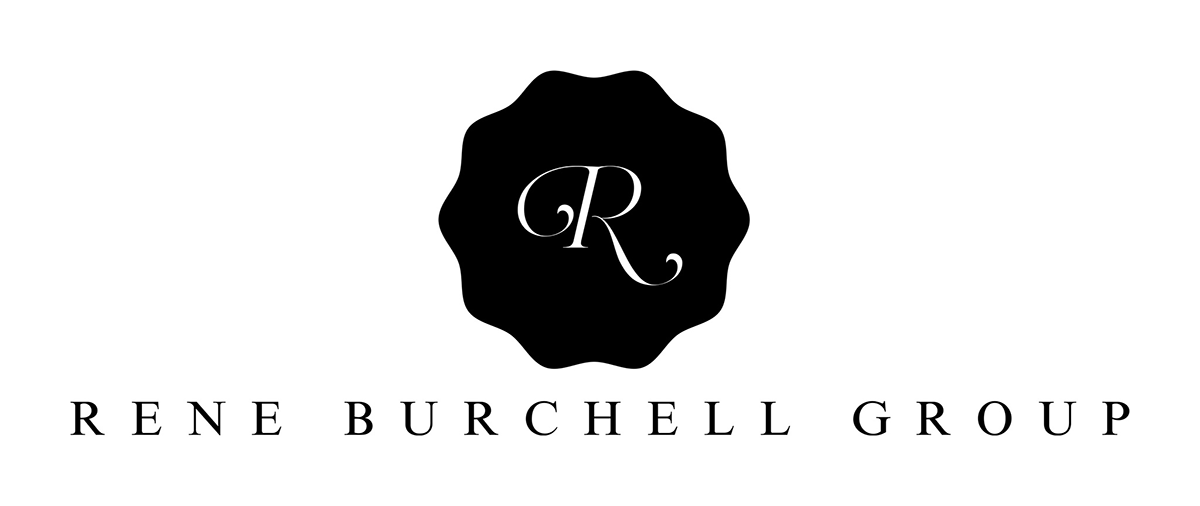You may fully understand the value of obtaining a seller’s agent when preparing to list your home. There are a lot of things real estate agents bring to the table that can not only help the homeowner sell faster and for more money but can also protect the seller from contract loopholes and legal repercussions. Not all agents have the same characteristics, so finding the right agent could be a chore of its own. However, it’s a chore well worth the investment.
Getting Referrals | Who Do You Know?
 The best beginning is always with the opinions and words of wisdom from those you respect about service providers with whom they’ve had experience. Even social networks have tapped into the power of word-of-mouth advertising by creating the “recommendations” feature where users can ask each other and answer with links, address, phone number, and website of providers in the area.
The best beginning is always with the opinions and words of wisdom from those you respect about service providers with whom they’ve had experience. Even social networks have tapped into the power of word-of-mouth advertising by creating the “recommendations” feature where users can ask each other and answer with links, address, phone number, and website of providers in the area.
Whether you get a list of names from people you know, from Internet searches, or both, your next step is to refine that list according to the ratings and reviews of others. There are now websites created for the sole purpose of rating and reviewing services and service providers. Social networks now include these rating and review features as well. When you see an agent is receiving consistently bad reviews, cross that agent off your list.
Specialties, Niches, and Locations
Agents specialize in various aspects of real estate. Some real estate professionals cater to commercial sales, others to waterfront or luxury properties, others specialize in condos and townhomes, or short sales. For example, some agents specialize in working with military households or divorcing homeowners.
Just like agents specialize in particular categories of real estate, they also hold different expertise in neighborhoods. An agent might focus highly on connected communities within a city. Knowing the areas is important so the agent can point out community amenities, schools, nearby transportation, community centers, parks, or other selling points of the property.
Determine your need, and then choose an agent appropriately.
What Your Agent Does for You (And Good Questions to Ask)
Your real estate agent does a lot more for you than put a sign in your yard to announce your house for sale. Knowing what an agent’s role is in the sale of your home can help you identify good topics for interviews. A realistic understanding of what to expect from your agent, and how you might be able to be your agent’s right-hand man, could expedite the process of getting your house sold for top dollar in minimal time.
Set the Price: When you find the right agent, he or she will set straight to work on helping you discover the best asking price for your house for sale. The agent comprises information from public records, a comprehensive market analysis, area research, and data supporting the agent’s suggested list price for your property. The agent then inspects the property inside and out, similar to how an appraiser would do to determine fair market value and will help you find ways to improve your home and raise the chances of receiving bids with a higher price.
Your agent cannot tell you that you should or should not ask a specific price for your property. It’s yours to sell and price how you like. However, your agent’s job is to help you get as much money as you can in the shortest time possible. If you insist on a price that’s too high, your house could stay on the market too long, undergo several price drops, and develop a reputation for being a house that can’t sell so there must be something wrong with it.
Interview Question: How will you help me determine the best asking price for my house?
Note: Beware of agents who imply their ability to get the highest sales price for your home. Most agents will provide you a range recommended for you to price within, but an agent who all but guarantees top dollar could be waving a red flag.
 Marketing Your Property: Agents have methods, systems, formulas, and plans for how to market your home for sale. These include yard signs, print flyers, published classified ads, listing the property in the MLS, reaching out to an existing database, posting on social networks, sharing a virtual tour, and more. During this phase of the journey, your agent is expending as much intelligently applied energy as possible to get your house in front of the right buyers’ eyes.
Marketing Your Property: Agents have methods, systems, formulas, and plans for how to market your home for sale. These include yard signs, print flyers, published classified ads, listing the property in the MLS, reaching out to an existing database, posting on social networks, sharing a virtual tour, and more. During this phase of the journey, your agent is expending as much intelligently applied energy as possible to get your house in front of the right buyers’ eyes.
Interview Question: What is your marketing strategy for the sale of this home?
Note: There should be no delay in the delivery of this answer, which should be a rapid-fired checklist of activities the agent engages in to successfully market your home.
Showings: When your agent has drawn the attention of an audience, he or she will begin showing your home to potential buyers. Your agent will schedule private showings, schedule open houses, and provide a lock box for buyer’s agents to access the home for secure showings while you’re not home, such as like when you’re at work. During showings and open houses During viewings, your agent will point out features of the home and the community that may be selling points to potential buyers. Your agent will also be collecting information from people viewing your home for future follow up.
Interview Question: What can I expect from showings? Will there be open houses, showings by appointments, or a lock box? Will I know in advance before someone comes to view the house?
Note: You can increase the chances of success on days of showings by making the house is ready. Beds should be made, bathroom tidy, dishes washed, and the rest of the house in good condition. Everyone loves the smell of fresh-baked goods. On days of showings, you can bake cookies, heat up a store-bought dough, or even just light a sugar-cookie scented candle in the kitchen. The idea is to set the mood for sales.
Bids & Contracts: When your house receives offers, your agent will review those bids with you at great length. You’ll understand what’s being suggested regarding money, the timeline to closing, and contingencies. Your agent will then help you craft a reply whether it’s acceptance, counter-offer, or declining the offer. Once you’ve all agreed on a selling price and terms and the negotiating is done, the contracts come out for signing. Ask your agent questions you may have, or to help you understand any items in the contact that are less than clear.
Interview Question: How do you help me determine which is the best offer, or what contingencies should be negotiated?
Note: Just as with setting the asking price, your agent cannot tell you with certainty which offers you should consider, accept, or deny. The agent’s job is to empower you with information, and then represent you in the transaction.
The Orchestra’s Conductor
From here, several service providers join the effort in closing the sale of your house. Surveyors, inspectors, appraisers all come in to do their thing. Meanwhile, there are lenders processing your loan, escrow agents tending to the tasks, administrative assistants who are performing title checks and request for transfer. In other words, there are a lot of moving parts. Your agent oversees the processes to make sure everyone is on track for the scheduled closing day.
Interview Question: What is the projected timeline of tasks that take place between accepting an offer and closing day. What can you expect between now and the end of the transaction?
Note: Your agent should willingly provide you with helpful information along the way, keeping you aware of every aspect of the transaction. This continued updating is one reason it’s important to choose an agent whose communication skills are as good as his or her track record!
What Else?
 You’ve gathered some interview questions based on services a real estate agent provides, but how else can you determine which agent is right for you?
You’ve gathered some interview questions based on services a real estate agent provides, but how else can you determine which agent is right for you?
Ask your agent to show you the following information from their last six transactions:
*Original List Price
*Final Sales Price
*Number of Days on Market from List to Close
*Number of times the price was reduced.
List price is what the seller hopes to obtain. Final sales price is what the buyer was willing to pay. The number of days on the market gives you an idea of how long it may take to receive compelling offers, and the number of price reductions could clue you into problem areas that may prompt further questioning from you, such as why the house suffered on the market.
Try to avoid working directly with friends or family. While it’s always a nice gesture to support the ones we love, and a natural tendency to try to get a deal from someone we know, but mixing business with personal energy does not always work out well. You may come to realize that selling your house wasn’t worth the risk of destroying a relationship.
Beware of agents who imply the highest sales price, or who promise the lowest commission as these can both be danger signs. An agent who will “oversell” the result may lack confidence or experience and resort to shady tactics to entice clients. Agents who charge ridiculously low commissions may be new to the industry or have a track record that doesn’t warrant higher rates of pay.
When interviewing agents, ask about communication methods. How often can you expect to communicate with your agent about the progress in selling your home? Does the agent prefer text messaging, email, or standard phone calls? How long does it typically take the agent to respond to voicemails? Understanding these behaviors before locking into a working relationship will make things much easier down the road.
As you’re talking with these agents, take a mental note about which agents made you feel relaxed and comfortable, and which agents made you feel stiff and awkward Trust those instincts; they’re indicators of how the working relationship will be for the next month or three.
There’s No “I” in Team
While it’s true that you agree to allow your real estate agent to trade with you his or her services for a percentage of the proceeds from the sale of your house, it’s not the same as saying you’ve hired someone to do a job. You’re not handing over the burden of responsibility to an agent while you wash your hands of the project. Instead, you’re paying the agent for his or her expertise, to serve as a field guide for the process, to lead the marketing campaign, to assist you with offers and negotiations, and then walk you to the finish line.
Your agent can advise you about pricing, but you ultimate choose whatever course you feel is best. Don’t thwart your agent’s offer and set you all up to fail by insisting on an asking price way out of the range suggested by your agent.
Your agent can tell you how to stage your home to increase its value, but you still have to do the work of staging or hiring a staging company.
As you move through offers and negotiations, your agent can share educated experiences and words of wisdom, but you have to make the decision.
Remember, the agent you hire is on your side, is working toward the same goal, and has plenty to gain and a lot to lose regarding the sale of your property. The agent doesn’t get paid until the sale closes, so you have to know they’ll be working the entire time in your best interest to get top dollar in minimal time for the sale of your house. Lend your efforts in any way you can to supporting the cause.
Conclusion
It can cost you way more in the long run to cut out an agent trying to save a few bucks by listing for sale by owner. Real estate agents do a lot more than just announce the sale of your home and then wait around for the right buyer. They help you price and market your home, prepare the house for the market, show the home and negotiate terms, protect your legal interests, and oversee the processes toward the finish line.
Call Rene Burchell today at 469-877-3303 to tour available houses for sale in Frisco and surrounding areas.


